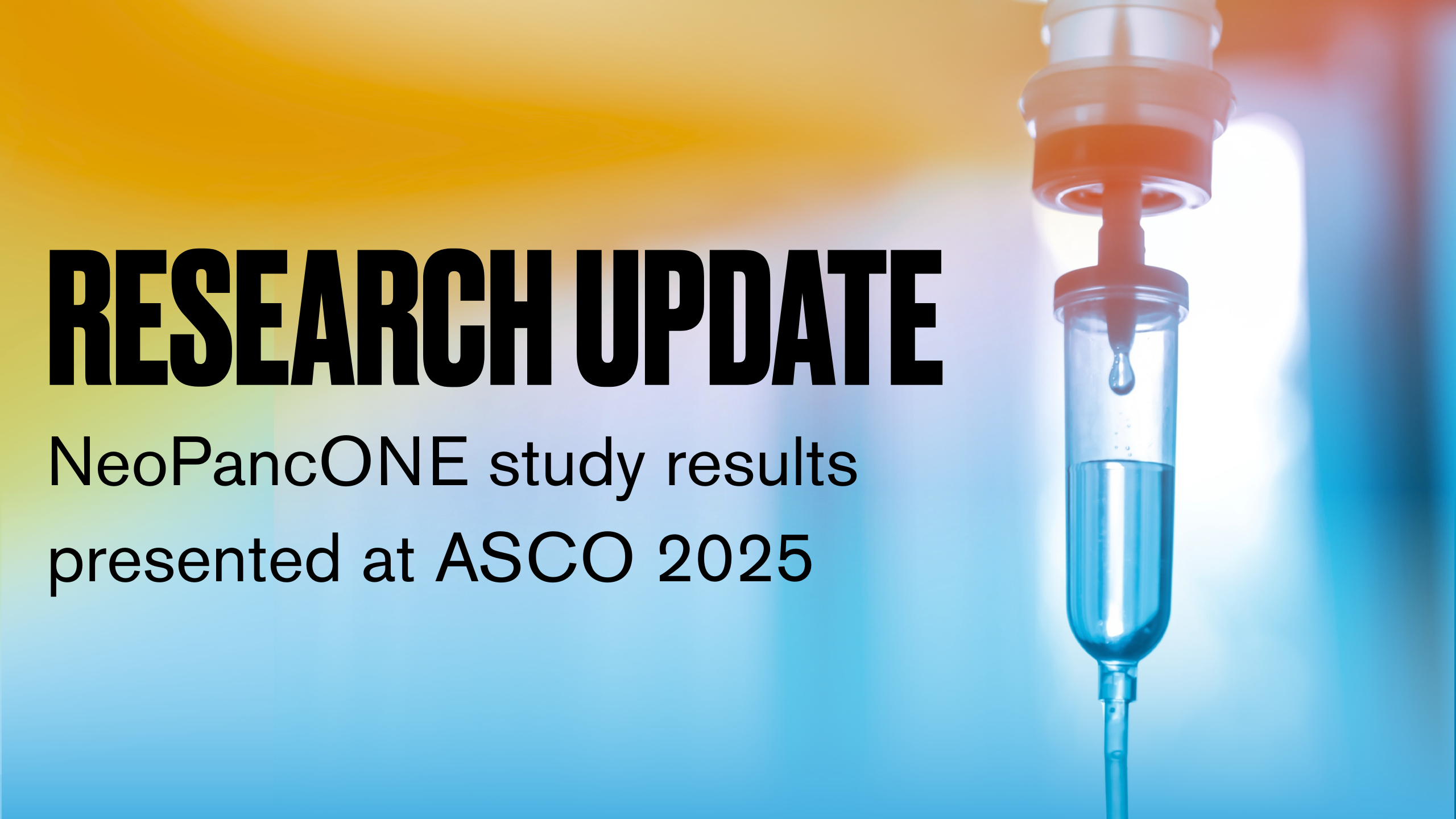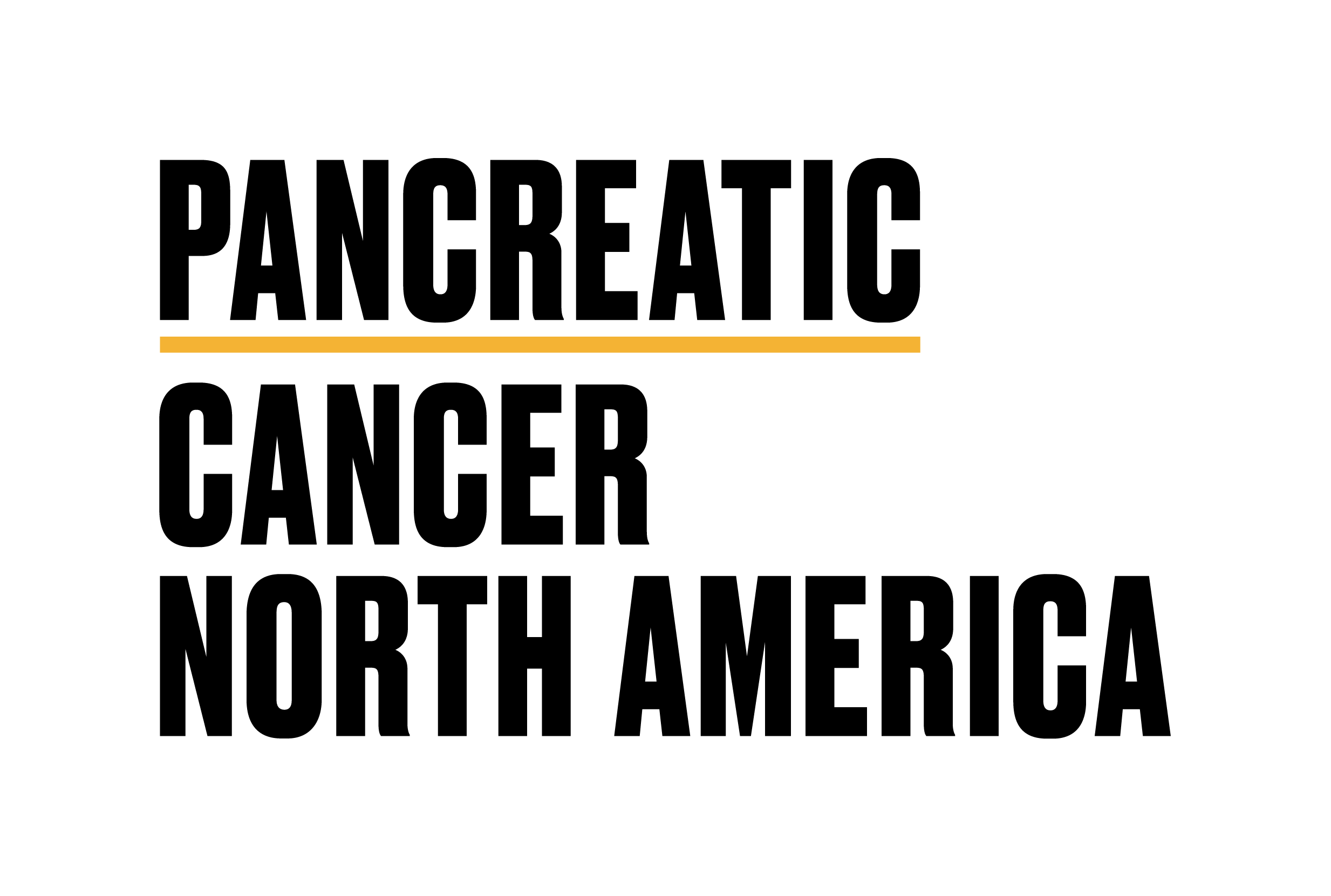
We were thrilled to see NeoPancONE, funded exclusively by our Canadian donors, showcased at the recent 2025 American Society of Clinical Oncology (ASCO) conference in Chicago. It was one of the most anticipated presentations spotlighting the progress being made against pancreatic cancer.
A Bold Approach to a Relentless Disease
Launched in 2020, NeoPancONE set out to test a potentially life-extending treatment strategy for patients with operable pancreatic cancer which has been a disease known for its poor prognosis and limited treatment options.
The Phase II trial, conducted across 10 leading cancer centers in Canada, explored the impact on patient outcomes of peri-operative chemotherapy, which is delivering chemotherapy both before and after surgery. This study specifically aimed to assess whether a key biomarker, GATA6, could help predict how patients respond to neoadjuvant chemotherapy (pre-surgical chemotherapy), using a modified FOLFIRINOX regimen.
GATA6 is a genetic marker that influences how pancreatic cancer behaves. It can be detected through analysis of tumor biopsy samples. Low GATA6 levels have been linked to more aggressive cancer types, poor response to treatment, and lower survival rates, which suggests that GATA6 status could help tailor treatment strategies to individual patients.
Promising Findings That Could Transform Care
The eagerly awaited results were presented to an international audience of oncologists and researchers at ASCO 2025. Between September 2020 and September 2023, the NeoPancONE team evaluated 146 patients across eight Canadian centers, ultimately enrolling 84 participants. Patients ranged in age from 44 to 83 (average age 64), with 61% identifying as female. The majority had primary tumors located in the head or neck of the pancreas.
Of the 84 enrolled patients, 73 successfully underwent surgery. Eight were unable to proceed to surgery due to disease progression, and three unfortunately died due to complications from neoadjuvant chemotherapy.
Crucially, the study found that patients with high GATA6 levels had better outcomes. They experienced lower rates of disease progression, responded more favorably to chemotherapy, and had improved survival. In contrast, over half of the patients with low GATA6 saw their disease progress or passed away within six months of enrolling in the study.
A New Path Toward Personalized Treatment
These findings mark an exciting advance in the quest for more personalized, precise treatment of pancreatic cancer. GATA6 shows promise as a biomarker that could help identify pancreatic tumors, predict chemotherapy response, and guide treatment decisions.
Pancreatic Cancer North America continues to champion bold, innovative research like NeoPancONE, pushing the boundaries of what is possible to improve survival rates for this relentless disease.

